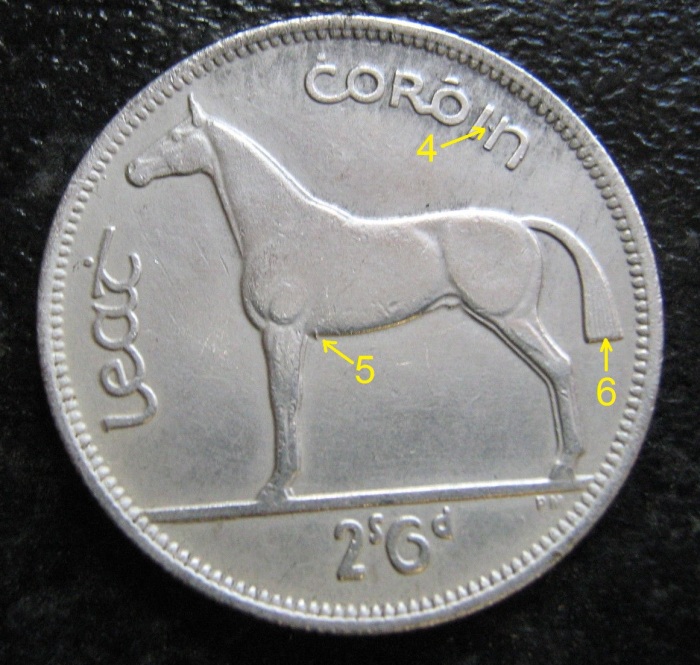Caveat emptor
Coin forgers have been with us for over a thousand years but this crime is no longer punishable in the medieval way, e.g. in the “Purge of the Moneyers” by Henry I at Christmas 1124, all of the English moneyers were summoned to Winchester, where most of them were castrated and had the right hand amputated.
With modern manufacturing methods, high quality forgeries are (sadly) more and more frequent – the latest example is the Irish 1943 halfcrown.
According to a recent report by the Numismatic Society of Ireland, several examples of this scarce halfcrown have appeared on the market, so buyers need to be extra vigilant when offered what may look like a bargain from an unusual source.
- Needless to say, an eBay seller “with little of no sales history” should be considered suspicious – especially if they have only “high value” coins for sale.
The two Halfcrowns spotted (so far) share flaws not seen on genuine coins and these are as follows:
Obverse
1. Metal blob on bottom part of “4” in 1943
2. Slight distortion on top part of the “1” in “1943”
3. Raised double scratch to the left of the first “é” of “éire”

Obverse – Fake 1943 Irish Halfcrown
Reverse
4. Metal blob between “i” and “n” of “coróin”—This is easy to spot
5. Metal blob or spike on horse’s chest behind front leg
6. Poor definition of the hairs in the horse’s tail

Reverse – Fake 1943 Irish Halfcrown



Pingback: Irish 'key date' coin forgeries